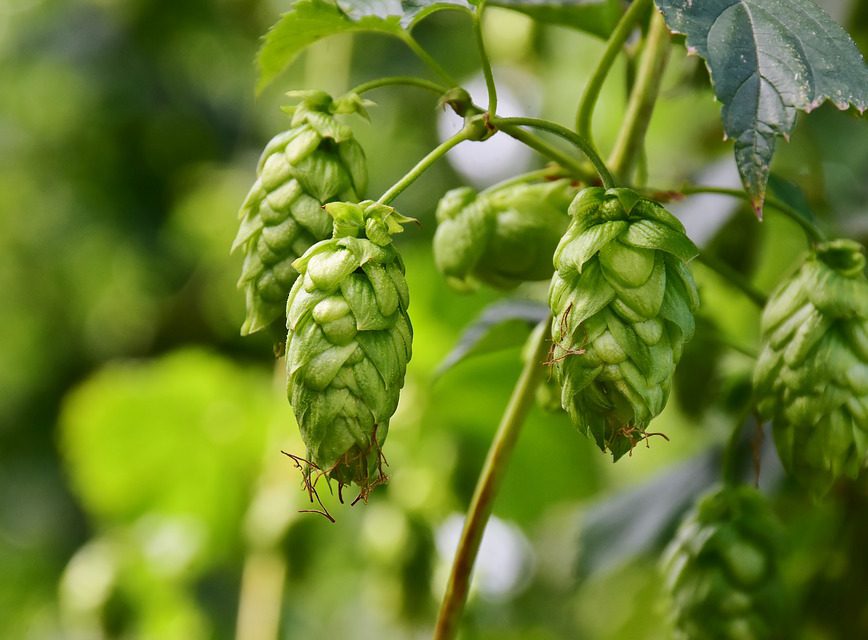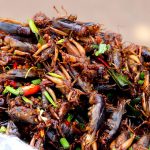Could extreme weather also threaten the production of a popular drink?
Climate events can have different impacts on the overall the yield and bitterness of hops. We can encounter combinations of phenomena in which only one variable is extreme, but also phenomena in which two extreme variables occur simultaneously (e.g. drought and heat wave). High temperatures and the development of heat waves are also facilitated by drought. Over the last 20 years, a feedback loop has developed between soil temperature and surface air temperature - warmer soil warms the atmosphere, and a warmer atmosphere causes the soil to warm, thereby maintaining the rise in atmospheric temperature. Increasing frequency of heat waves and droughts in hop-growing areas is leading to increasing income instability in beer production, affecting major hop growers across Europe.
A recent study by several of our scientists looked at the vulnerability of hop production due to combined climatic and meteorological events in Europe, focusing, for example, on identifying the effect of the duration of heat waves and droughts on yield reduction. These include the first work of its kind. The study covers key hop-growing regions across the European Union, such as Hallertau (Germany); Ústí nad Labem, Žatecko and Tršicko (Czech Republic); Kent (United Kingdom); Alsace (France); Lublin (Poland); Koroška (Slovenia) and Leon and Galicia (Spain).
Based on the models, the researchers determined the likely distribution of daily rainfall and maximum temperatures, which are used to assess the risk of simultaneous drought and heat waves during the hop season. The researchers then estimated the risks of lower yields from hop heads in the target areas. The results show that longer and more severe droughts and heatwaves occur more frequently than similar shorter periods. The highest level of risk was estimated in the large hop-growing areas of the Czech Republic and Germany. A total of 22.4 %, 12.5 % and 7.2 % of EU areas designated for commercial hop production fell into the categories for moderate, high and very high risks loss of revenue. Furthermore, an analysis of total damage between April and August indicated that more than 62,7 % losses of revenue was due to high temperatures during drought and 21.5 % of losses were due to dry and cold conditions in the regions. In addition, the warmer European droughts caused a 29-68 % drop in the yield of quality aromatic hops. This suggests that hop yields are very sensitive to these climatic events, in particular due to slower hop adaptation compared to field crops.
POTOPOVÁ, Vera, Ondřej LHOTKA, Martin MOŽNÝ and Marie MUSIOLKOVÁ. Vulnerability of hop-yields due to compound drought and heat events over European key-hop regions. International Journal of Climatology [online]. [cited 2020-11-19]. ISSN 0899-8418. Available from: doi:10.1002/joc.6836
Not good news for beer drinkers! https://www.rmets.org/node/417841

doc. Dr. Mgr. Vera Flood
Vera Potopova is a graduate of Geography and Biology at the Faculty of Geography, State University of Tiraspol, Republic of Moldova. She completed her postgraduate studies in 2002 in Meteorology, Climatology and Agrometeorology in the Department of Climatology at the Institute of Geography of the Moldovan Academy of Sciences (MAV). After graduation, she worked at the MAV as a researcher in the field of climatology. In 2005, she was selected to participate in a pilot project led by the Ministry of Labour and Social Affairs of the Czech Republic - "Active selection of qualified foreign workers". From 2006 to the present time she has been working at the Department of Agroecology and Crop Production, FAPPZ ČZU. Recently, her activities have focused on drought climatology and its impacts on agriculture, water management, economy and society (migration, human health and quality of life) and she has been using her existing knowledge to validate and calibrate growth models for modelling yield parameters of thermophilic vegetables under changing climatic conditions.






